This article was co-authored by wikiHow Staff. Our trained team of editors and researchers validate articles for accuracy and comprehensiveness. wikiHow's Content Management Team carefully monitors the work from our editorial staff to ensure that each article is backed by trusted research and meets our high quality standards.
There are 9 references cited in this article, which can be found at the bottom of the page.
This article has been viewed 52,170 times.
Learn more...
Maybe you work at night and you’re not allowed to have your phone with you on the job, or maybe you just enjoy spending some time alone, not glued to the television, while everyone else is sleeping. As a society, we’ve become dependent on technology to wake us up and occupy our minds so that we stay awake. However if you so desire, you can train your body and mind to stay up late the old fashioned way: without electronics.
Steps
Picking Yourself Up
-
1Drink caffeine. Caffeine blocks neurotransmitters in your brain that make you sleepy. When you start to feel drowsy, reach for a cup of coffee or a soda.[1] Remember that caffeine loses its effectiveness with overuse. Try to save it for when you really need it.
- Caffeine will cause a crash in energy after a couple of hours.
- Stop drinking caffeine about four hours before your bedtime or it could affect your sleep cycle.
- If coffee makes you feel jittery, try green tea. Green tea has a third of the caffeine found in coffee and lasts almost as long. Green tea also has L-theanine, an amino acid that helps you feel relaxed and focused.
-
2Use essential oils. Peppermint and cinnamon essential oils have been found to increase wakefulness. Smelling essential oils is a natural and safe way to fight tiredness. The smells have even been known to mitigate anxious feelings.
- Essential oils are very potent so you may want to hold them a little ways away from your face when smelling them.
- If your job includes driving, you can put a few drops of essential oil on a tissue and put the end of the tissue in the air conditioner vent. The vent will cause the aroma to circle throughout the car.[2]
- Stay away from smells like lavender. Certain smells can actually relax you to sleep.
Advertisement -
3Get active. Get up and get moving to wake yourself up. Even a light twenty-minute walk can give you more energy and get your blood pumping. You can also do a few stretches every once in awhile to release tension from your body that can drain your energy.
- A lot of tension rests in your shoulders. You can do a few shoulder shrugs to release this tension. Roll your shoulders up as high as they can go. Squeeze them for a second. Then roll them back down and relax.
- Avoid strenuous exercise. If you exhaust yourself, it will be harder to stay awake.
-
4Change your body temperature. A hot stuffy environment can drain your energy and make it really easy for you to fall asleep. A sudden drop in temperature will instantly shock your body into alertness.
- Splash some cold water on your face.
- Have a cold shower.
- Open a window and let the cold air hit you.
- Drink a cold glass of water.
-
5Eat something. As the hours pass, your body could burn all the calories you consumed during the day. Make sure to give your metabolism some fuel to turn into energy. Don’t just eat junk food. Eat foods that are high in protein and healthy fats for a quick jolt of energy. Food high in protein also stimulates orexin, a neurotransmitter that regulates wakefulness.[3] Try eating:
- Eggs
- Lean meats
- Avocadoes
- Beans
Occupying your Mind
-
1Read a book. Choose an adventure story or a book about a topic that interests you. Make sure you're excited to turn the page. Make sure you stay sitting up while you’re reading. If you let yourself get too comfortable, you could fall asleep.
- Don’t read books with super small print. The strain could exhaust your eyes and cause them to close.
- Take breaks periodically to prevent dozing off.
-
2Start a creative project. Choose something you’re really interested in. You’re mind will be too consumed with your project to think about being tired.[4] Some examples of fun projects you can start include:
- learning a song
- writing a story
- building a model airplane
- painting a portrait
-
3Plan a trip. Imagine a location that you’d really like to visit. Write out a plan to take a vacation there. Think about everything you’d like to experience on your vacation. Decide where you’ll be staying and how you’ll get there. You’ll be too excited about your dream vacation to fall asleep.
- Let your mind wonder. Don’t worry about being realistic. You can imagine anywhere you want to go.
-
4Clean your area. You can gain mental focus by sprucing up your environment. The act of cleaning itself will energize your body and mind. Having an organized, spotless environment when you’re done cleaning will help you think more clearly.
-
5Have a conversation. If you’re at work, you can talk to some of the other employees about things that interest you. Share a few laughs. Tell some cool stories. An engaging conversation will keep you feeling wide awake.
- If you’re alone, you can talk to yourself. This may sound crazy but it can be beneficial. You can solve problems and work through issues you may have out loud.[5]
Changing your Sleep Cycle
-
1Take naps during the day. It will be more difficult to fall asleep at night if you take a nap late in the day. Keep your naps short, about twenty minutes or under, so you don’t wake up feeling groggy.[6]
- If you take a long nap of about ninety minutes, you can get through an entire deep sleep cycle which can reduce the amount of sleep you need at night.
-
2Adjust your sleep cycle by increments. Try to stay awake fifteen to thirty minutes longer each night. Gradually, it will feel more natural staying up later. Keep adding time until you feel comfortable staying up as long you want to.[7]
-
3Reset your “food clock”. In the wild, animals constantly have to readjust their sleep cycles depending on their food source. You can do the same. To do this, fast for twelve hours before you intend to wake up. When you do wake up, have a full breakfast. The breakfast will reset your metabolism and your body will be automatically re-calibrated to wake up at the new time.
- For example, if you want to wake up at five in the morning, start fasting at five in the afternoon the day before.[8]
- Don’t break your fast until you wake up.
-
4Sleep during the day. Make sure your sleeping area is completely dark. Close your shutters, turn out the lights and use eye coverings to banish out any light that may peep through.[9] Get a full eight hours of sleep during the day so that you can stay awake at night.
- Be sure to get some sunlight. Your body needs it to absorb Vitamin D.
-
5Use blue blocking shades. Blue light has a very short, high-energy wavelength that makes you feel more alert and prevents your body from producing melatonin. Because your body needs melatonin to go to sleep, you want to block out all the blue light you can before your bedtime. If you have to sleep during the day, wearing orange-tinted shades that block out blue light can help you wind down.
- Artificial light from computers, televisions and light bulbs can be very high in blue light.
- Blue light is the highest energy and shortest wavelength of light in our visible spectrum.
Warnings
- Don’t exercise too hard or it could tire you out.⧼thumbs_response⧽
- Especially don’t exercise after consuming a lot of caffeine. It could over-work your heart.⧼thumbs_response⧽
- Don't eat unhealthy energy snacks. They may work for a short period of time, but they will remove energy later in the day.⧼thumbs_response⧽
References
- ↑ http://time.com/64985/how-caffeine-affects-brain/
- ↑ http://pioneerthinking.com/health/staying-awake-at-the-wheel-natural-help-from-essential-oils
- ↑ http://www.thedailybeast.com/articles/2013/12/04/five-healthy-and-legal-ways-to-stay-awake-longer.html
- ↑ http://allisonfallon.com/creative-project/
- ↑ http://womanitely.com/benefits-talking/
- ↑ https://sleepfoundation.org/sleep-topics/napping
- ↑ http://psychcentral.com/blog/archives/2012/05/09/7-tips-to-shift-your-sleep-schedule/
- ↑ http://www.wisebread.com/how-to-naturally-reset-your-sleep-cycle-overnight
- ↑ http://lifeinthefastlane.com/top-10-tips-surviving-nightshift/

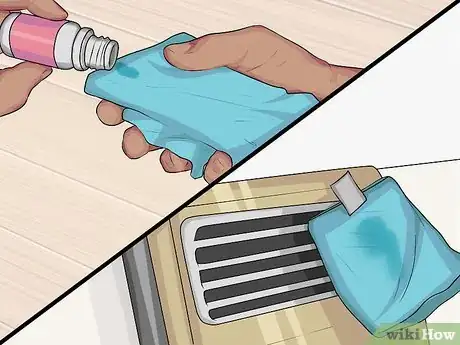
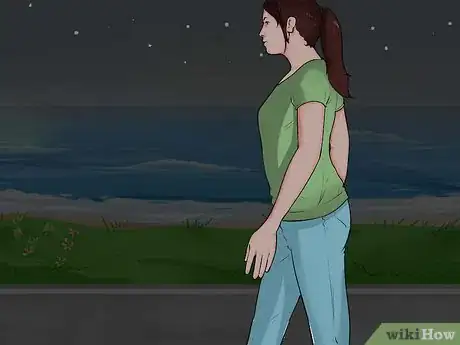
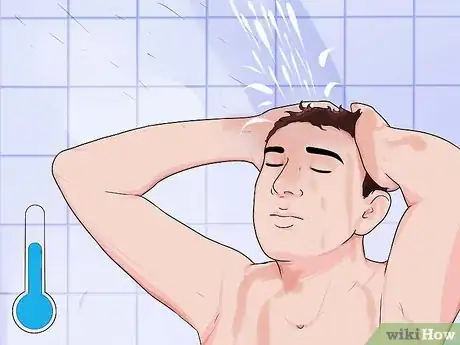




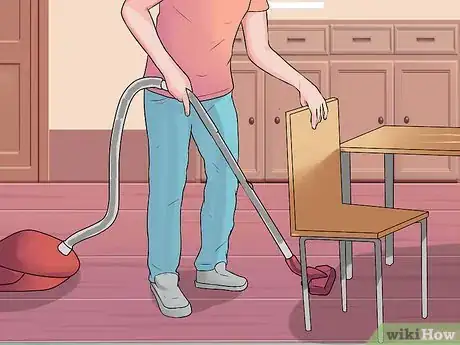

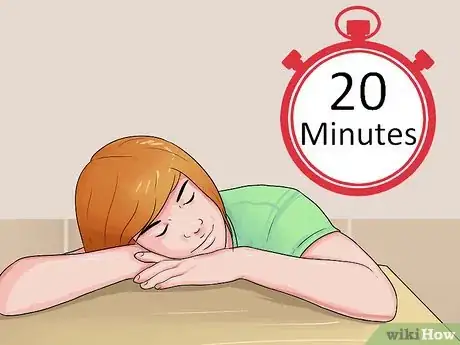
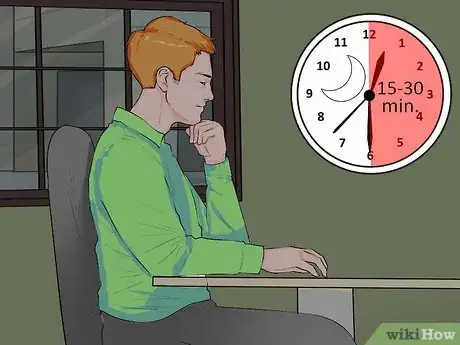
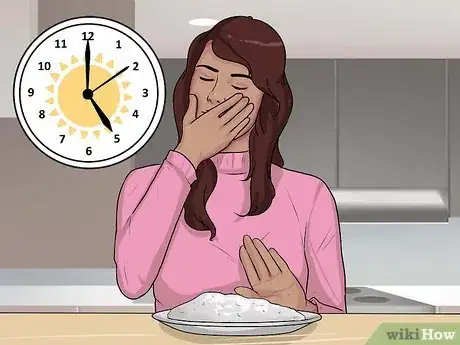
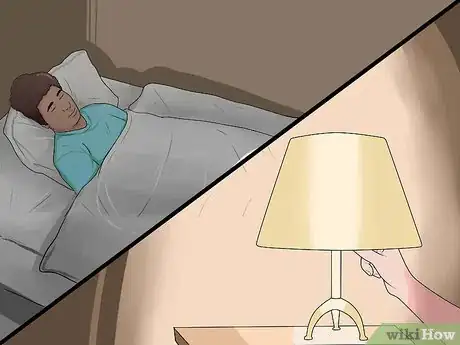

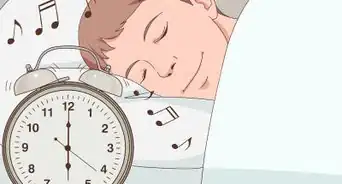
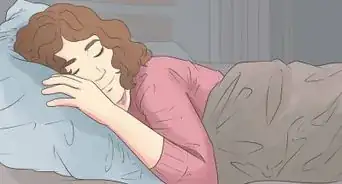


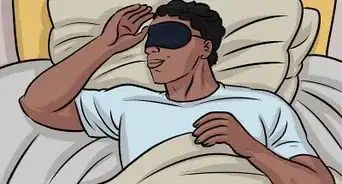

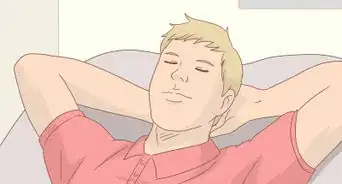
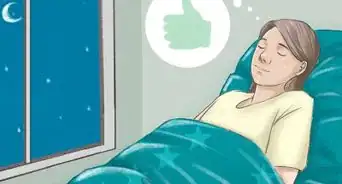
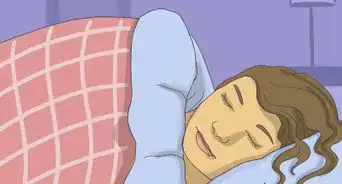


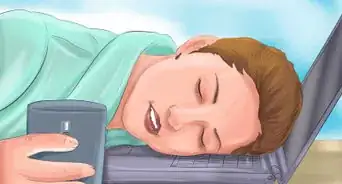
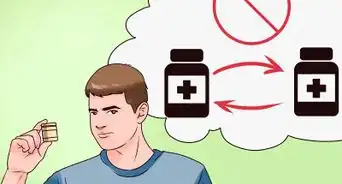








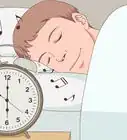






































Medical Disclaimer
The content of this article is not intended to be a substitute for professional medical advice, examination, diagnosis, or treatment. You should always contact your doctor or other qualified healthcare professional before starting, changing, or stopping any kind of health treatment.
Read More...